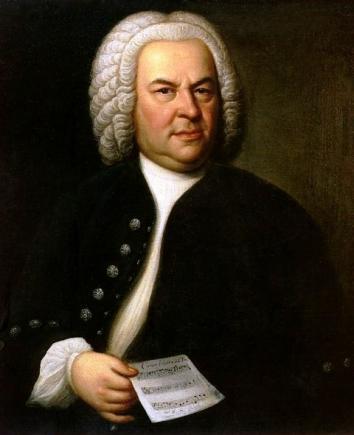I agree with Franz Schubert, who said in his diary: “Johann Sebastian Bach has done everything completely. … He was a man through and through.”
Having loved Bach since childhood, I can say I find his music to be a companion for all times, good and bad. As I’ve grown older I’ve realized his complete mastery of melody, for his contrapuntal work and for the religious works that are so deeply inspired as to reach an agnostic like myself.

Courtesy of Wikimedia Commons
Bach might have been viewed as old-fashioned not long after his death, but since Mendelssohn’s revival, we see that Bach can be played on any instrument, and his melodies are still so culturally relevant that contemporary musicians have reused them several times throughout the centuries since his death. You can hear Bach references in pop music and jazz. Artists like Nina Simone admired Bach’s melodies—she herself interwove them with her own songs. His most famous melodies stick in your brain, as they did when I was a child listening to the radio. I have never forgotten the iconic beginning to his “Six Cello Suites” or his “Toccata and Fugue in D Minor” or “Air on the G String.”
There is something for anyone. I don’t discriminate between playing a simplified version of one of his Bourrées or playing the Urtext. Each appeals to me musically as well as intellectually. There is so much to learn about Bach. You wonder how he thought of his ideas, how he found melodies and harmonies that seem to defy description. And the tune forces you to pay attention or simply to remember. There was one particularly Bourrée in A Minor which I liked so much about six or seven years ago. I played and played it until I had mastered it, then taught it to my siblings; at one point in time, we could almost all play it. Looking back now, it had a very simple structure, but even in the simplified version, there were still chances to switch between different melodic chords before returning to the key of A Minor. When I am out of practice, I still return to that particular Bourrée.
Bach never wrote “bad” music. True, a criticism of his works is the structure, particularly in his deep study of counterpoint. As someone else here has mentioned, you do get to realize the structure and formations after a while, but that doesn’t stop me from admiring the sheer genius behind such melodies. Even looking at the scores forces me to wonder how he thought when composing. But I cannot name a piece that is simply awful; everything can be listened to, can be appreciated. And his “Passions” and “Mass in B Minor” stand apart from choral music in general.
An extremely important reason that Bach is so good is his intense study of music itself. He referenced so many composers, both older and contemporary. Bear in mind that Bach was mainly known as an organist in his day rather than a composer. Men like Georg Philipp Telemann and Georg Friedrich Handel were more highly regarded and in demand. one cannot speak about Bach without respecting the influence of composers such as Dietrich Buxtehude, the Flemish organist.
Bach is said to have walked several miles on foot to hear him play in Lubeck. I often feel that Buxtehude isn’t given enough exposure, yet if you study his organ music and cantatas, you can really see where how Bach evolved from this. Listen to the use of melody and phrasing in his organ works to see how Bach developed his own take in due course. Another example is Heinrich Schutz, who fused early Italian Baroque with the northern German organ music. Listen to his seminal work, “Psalmen Davids” for more appreciation of Bach’s later method to his cantatas.
He took simple Lutheran melodies and developed them into fully-fledged works, adding his own touch of genius and love complexity to each one. “Wachet Auf” is one such example—the original tune was by Philipp Nicolai, composed in the 16th century, but most listeners would recognize Bach’s version first. Bach transcribed many works of other composers, showing how he admired them. He spent a great deal of time studying the Italian Baroque style, probably playing the works of Arcangelo Corelli and Giovanni Pergolesi. These inspired his own seminal violin sonatas. There are actually far more composers who influenced Bach, which was very interesting to read.
Bach is an intellectual puzzle. He is a musical genius and a superb musical student. He learned and taught, composed and played, and brought joy to millions of music fans around the world.
More questions on Quora:
- Johann Sebastian Bach: If you put Beethoven, Mozart, and Bach in a room, what would they disagree on?
- Baroque Music: What are the differences between Baroque and Romantic interpretations of the Bach Cello Suites?
- Classical Music: What does it feel like to be a professional classical musician?